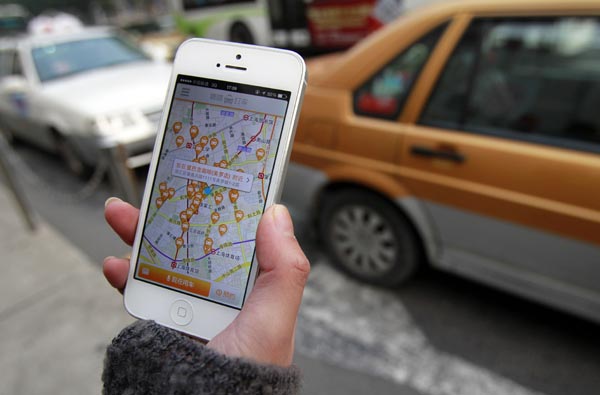

 |
|
A customer checks his smartphone app that eases finding a taxi. [Photo/China Daily] |
The announcement, made in New York by Didi Kuaidi President Liu Qing and John Zimmer, co-founder and president of Lyft, confirmed recent media reports that cited sources as suggesting the investment was made in the spring.
Didi Kuaidi controls 80 percent of the overall ride-hailing market in China, where its services cover more than 360 cities. Uber operates in 11 Chinese cities, and is planning on entering 100 more in the next year.
Uber recently raised $1.2 billion for its China unit, including an additional investment from Baidu Inc. Didi Kuaidi is approaching a second closing that would raise an additional $1 billion, after bringing in $2 billion in July, according to The Wall Street Journal.
In July, Didi Kuaidi was valued at $15 billion, while Uber was most recently valued at $51 billion.
Liu said her company has "strong faith in Lyft's future in the US", and that Uber is a very strong competitor in China, "but we feel really good about our position in China right now".
Zimmer said: "In the last two months, we tripled our completed rides in New York, and got our pickup time down to three minutes."
In addition to having Uber as their rival, Liu said that Lyft and Didi share very similar philosophy. "For this collaboration, it's more about how we can bring the evolution of this industry to the next level," Liu said.
She said ride-sharing was still in its infancy in China, and that Didi Kuaidi and Lyft hope to combine the power of their advanced algorithm systems and ride-matching capabilities, share local knowledge and other business-related resources and explore new models of cross-platform and cross-regional market development.
The two companies' technology and product development teams will collaborate on launching cross-platforms early next year so their users can access local on-demand transportation services offered by each partner company when they travel in the US and China.
A Lyft user from the US will be able to use the Didi service when in China, and can hail a taxi, get a private car, or use Hitch, the social ride-sharing feature launched by Didi in June.
Liu said Lyft might use the social ride-sharing feature in the US. It allows every car owner to put in his starting point and destination, and the app will match him with possible passengers who are going on the same route.
Related Stories